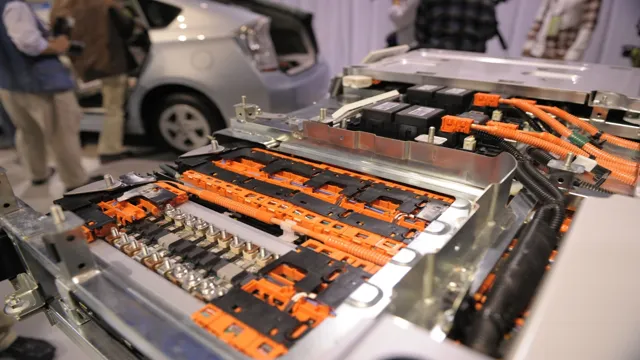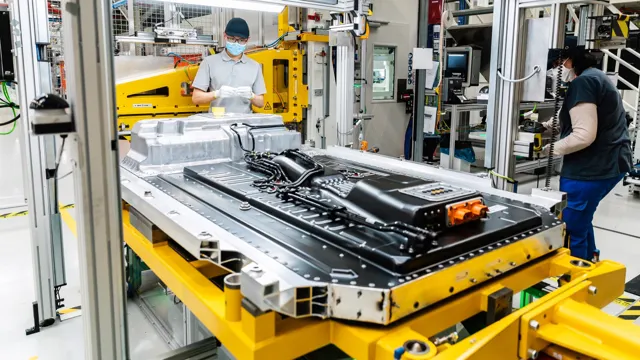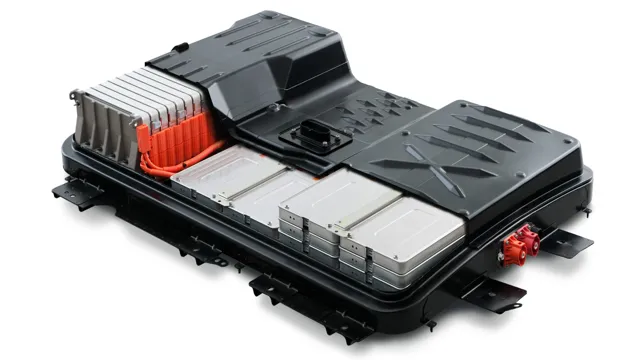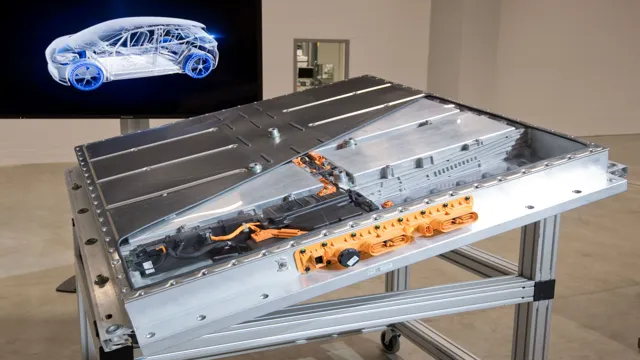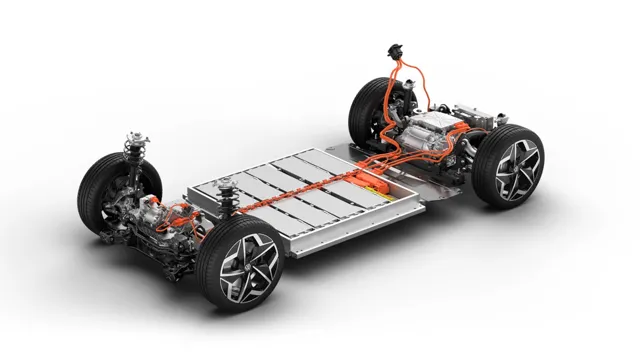Unpacking the Truth: Do Electric Car Batteries Really Wear Out?
As electric cars become more popular, many people wonder about the long-term durability of electric car batteries. People are used to the idea that car batteries need replacing every few years, but what about their electric counterparts? Do they wear out? The answer, like many things in life, is not a simple “yes” or “no.” Electric car batteries can wear out, but it’s essential to understand what that means and what factors contribute to their longevity.
In this blog, we’ll explore the ins and outs of electric car batteries, how they work, and what you need to know about their lifespan. So, if you’re a car owner considering going electric or just curious about how these machines work, keep reading!
Basics of Electric Car Batteries
One common question people have about electric cars is whether or not the batteries wear out over time. The answer is yes, just like any other battery, the battery in an electric car will degrade over time. However, the rate of degradation can vary depending on a number of factors including the type of battery, the climate, how the car is driven, and how well the batteries are maintained.
Most electric car batteries are designed to last for at least 100,000 miles, with many manufacturers offering warranties for at least 8 years or 100,000 miles. Additionally, advancements in battery technology are continually being made, which means that future electric car batteries will likely have longer lifespans and go further on a single charge. Overall, while electric car batteries do wear out, they are designed to last for a long time and are continuously improving.
Explaining Lithium-ion Batteries
When it comes to electric cars, the battery is a crucial component. Electric car batteries are typically lithium-ion batteries, which work by storing energy in an electrochemical reaction between the positive and negative electrodes. The electrodes are separated by a liquid electrolyte, which allows lithium ions to move between them.
This movement creates a flow of electrical current, which can power the electric car’s motor. One of the benefits of lithium-ion batteries is their high energy density, which allows them to store a lot of power in a relatively small space. They also have a long lifespan and can be recharged multiple times.
However, one downside is that they can be expensive to manufacture. Nonetheless, with the rapidly increasing demand for electric cars, lithium-ion batteries continue to be a popular choice for powering these vehicles.
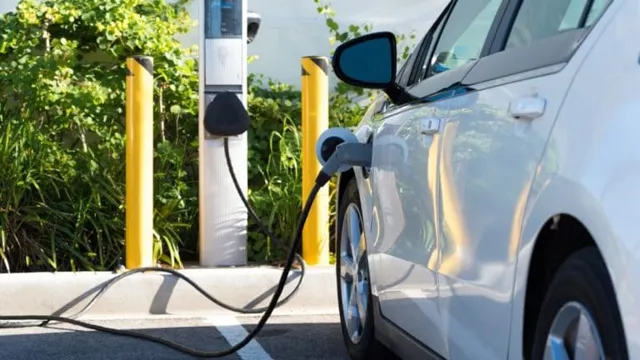
How Electric Car Batteries Function
Electric car batteries are the backbone of electric vehicles, providing power to the electric motor that drives the car’s movement. The batteries function by converting chemical energy into electrical energy, which is then used to power the vehicle. The common battery technology used in most electric cars is lithium-ion batteries, consisting of an anode, cathode, and electrolyte.
When the battery is charged, lithium ions move from the cathode to the anode, producing an electrical current. When the car is in use, the process is reversed, causing the ions to flow from the anode to the cathode, releasing electrical energy to power the car. With advancements in technology, electric car batteries are becoming more reliable and efficient, allowing electric cars to have longer ranges and be more cost-effective.
Overall, electric car batteries are essential in making electric cars a viable alternative to traditional gasoline vehicles.
Factors That Affect Battery Lifespan
Have you ever wondered if batteries in electric cars wear out? They actually do, but the lifespan may vary depending on several factors. One of the most influential factors is the battery chemistry- the type of chemicals used in the battery. Lithium-ion batteries, commonly used in electric cars, have a typical lifespan of around 8-10 years but can last much longer if properly maintained.
Another factor that affects battery lifespan is the temperature. High temperatures accelerate the degradation process, while low temperatures reduce the battery’s performance. Charging habits could also impact the battery’s health.
Frequent fast charging and deep discharging may reduce the battery’s overall lifespan. However, regular charging and maintaining a healthy battery level can prolong its lifespan. Lastly, the number of charging cycles could also play a role in the battery’s wear and tear.
The more cycles, the more the battery gets worn out. Overall, electric car manufacturers are striving to develop longer-lasting batteries that can withstand these factors and provide a longer lifespan for their customers.
Mileage and Charging Habits
When it comes to electric vehicles, one of the most common concerns is the lifespan of the battery. There are several factors that can affect the longevity of the battery, including driving habits and charging habits. For example, frequent fast charging can actually shorten the lifespan of the battery, while slower, more consistent charging can help to preserve it.
Additionally, driving at higher speeds and in extreme temperatures can also have an impact on battery life. However, by being mindful of these factors and adopting good charging practices, such as avoiding overcharging and keeping the battery at a moderate temperature, it’s possible to extend the lifespan of your EV battery. At the end of the day, it’s all about finding a balance between maximizing your range and preserving the health of your battery.
Environmental Conditions
Environmental conditions play a significant role in determining the lifespan of your battery. The temperature, humidity, and exposure to sunlight can all affect the health of your battery, causing it to fail prematurely. High temperatures can cause the battery to lose its charge faster, while cold temperatures can make it difficult for the battery to function altogether.
Humidity can also cause damage to your battery’s internal components, resulting in a shorter lifespan. Exposure to UV radiation can also cause damage to the battery, as sunlight can cause the materials inside the battery to break down over time, leading to decreased performance. Therefore, it’s important to keep your battery in a cool, dry place away from direct sunlight if you want to maximize its lifespan and get the most out of your electronic devices.
Regular maintenance and following the manufacturer’s guidelines for storing your battery can also go a long way in maintaining its longevity.
Battery Manufacturing Quality
When it comes to battery manufacturing quality, there are a number of factors that can affect the lifespan of a battery. One of the most important is the type of materials used in the construction of the battery. High-quality materials will typically result in a longer lifespan, while lower quality materials may result in a shorter lifespan.
Another factor to consider is the manufacturing process itself. A battery that is made using precise manufacturing techniques and quality control measures is likely to last longer than one that has been poorly manufactured. Additionally, the storage conditions of the battery can have an impact on its lifespan.
Batteries that are stored in high temperatures or in overly humid environments may degrade faster than those that are stored in cooler, drier conditions. Overall, it’s important to choose a high-quality battery from a reputable manufacturer and ensure that the battery is stored and used in the proper conditions to maximize its lifespan.
Average Lifespan of Electric Car Batteries
As electric vehicles become more popular, many people are wondering if batteries in electric cars wear out and need to be replaced. The lifespan of electric car batteries can vary widely depending on the make and model of the vehicle and how well the battery is cared for. On average, electric car batteries last between 5 and 10 years, or about 100,000 miles.
However, some newer models have batteries that are designed to last even longer, up to 300,000 miles. Battery wear and tear can be influenced by factors such as temperature, driving habits, and how frequently the battery is charged. Proper maintenance, such as keeping the battery at a moderate temperature and avoiding heavy acceleration and braking, can help extend the lifespan of the battery.
Overall, while batteries in electric cars do wear out, they are designed to last for several years and can often be recycled or repurposed after they are no longer useful in a car.
Data from Industry Experts and Studies
Electric Car Batteries Electric car batteries are an inseparable part of the electric revolution, but how long do they last? According to industry experts and studies, the average lifespan of electric car batteries is around 8-10 years or about 100,000 miles. However, this estimation varies depending on driving habits, environmental factors, and battery chemistry too. Some drivers have reported up to 200,000 miles on their electric car batteries.
Also, the type of charging used can affect the lifespan of electric car batteries. Using fast charging or charging the battery to 100% consistently can harm the health of the battery in the long run. Therefore, if you’re considering buying an electric car or own one, it’s essential to take good care of the battery to increase its lifespan.
You can achieve this by avoiding the extremes of temperature, minimize the number of full discharges, and limit the usage of fast charging. While electric car battery technology continues to advance, it’s essential to appreciate the battery’s critical role and take good care of it. Remember, a healthy battery means more miles and more savings in the long run.
Real-World Experiences from Electric Car Owners
As electric cars become more popular, many people are curious about how long their batteries will last. While it’s difficult to give a definitive answer as it depends on many factors, including usage, battery type, and climate, most electric car owners say their batteries last about 8-10 years or around 100,000 miles. This is significantly longer than the lifespan of a traditional gasoline engine, and many electric car manufacturers offer warranties that guarantee at least eight years of battery life.
However, it’s important to note that battery degradation can occur over time, reducing the car’s range and performance. On the bright side, some electric car owners say that battery degradation has been slower than they had anticipated, and they’ve experienced little to no loss in range even after years of use. Ultimately, with proper care and maintenance, the battery life of an electric car can last for many years.
Maintenance Tips for Maximizing Battery Life
“Do batteries in electric cars wear out?” The answer is yes, they do. However, there are maintenance tips that can help maximize battery life. One tip is to avoid letting the battery charge get too low.
It’s best to recharge your electric car battery before it drops below 20% to prevent long-term damage. Another helpful tip is to keep your electric car battery cool. High temperatures can accelerate the breakdown of the battery’s chemical components, so it’s best to park in a cool, shaded area whenever possible.
Regularly checking and replacing the cabin air filter can also help maintain optimal battery temperature. Finally, it’s important to avoid rapid charging unless it’s necessary. Rapid charging can wear out the battery faster than charging at a slower pace.
By following these tips regularly, you can help extend the life of your electric car battery and get the most out of your investment.
Conclusion
In conclusion, the answer to the question of whether batteries in electric cars wear out is a resounding yes. However, much like the batteries in your TV remote or smartphone, the lifespan of electric car batteries largely depends on usage habits and maintenance. So just like you wouldn’t expect your phone to last forever without charging, it’s important to keep an eye on your electric car’s battery health and treat it with care.
And if all else fails, just keep in mind that at least you won’t have to worry about running out of gas!”
FAQs
How long do electric car batteries last before needing replacement?
The lifespan of an electric car battery depends on several factors, such as the model of the car and how often it is charged. However, most electric car batteries are designed to last between 8-10 years before needing to be replaced.
Can electric car batteries be recharged, or do they need to be replaced entirely?
Electric car batteries can be recharged, typically using a charging station or a standard outlet. However, over time, the battery’s ability to hold a charge may diminish, which could eventually require battery replacement.
How do I know when my electric car’s battery needs to be replaced?
Most electric cars have a battery management system that monitors the health of the battery. It will typically send alerts to the driver or dealer when the battery needs to be replaced. In addition, a decrease in the car’s driving range can also be a sign that the battery needs replacement.
How much does it cost to replace an electric car battery?
The cost of replacing an electric car battery varies depending on the make and model of the car. Generally, it can cost anywhere from $5,500 to $15,000. However, some car manufacturers offer warranties or replacement programs that can help cover the cost of battery replacement.

